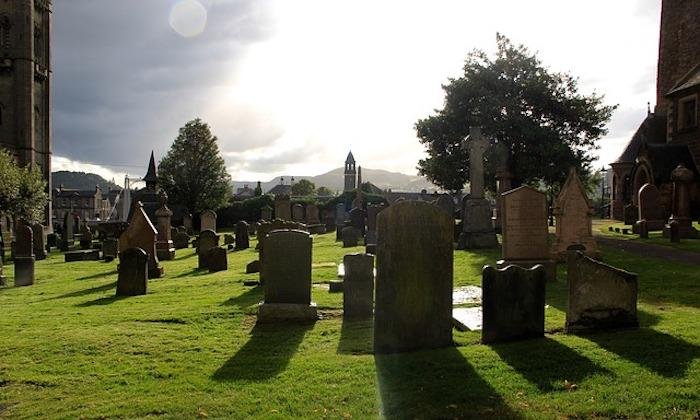"My grandfather was always joking, he never took anything seriously. He even joked about the amount of time he had left to live," Ryan said. "He was also an avid poem writer and was really proud of where he was from. He told me before he died he wanted this epitaph. It was his dying wish."
Erewash Borough Council in Derbyshire declined Ryan's request to engrave the poem stating that the word "bugger" wasn't "acceptable for a public ceremony."
Ryan said he explained the phrase is part of Ilkeston dialect and offered to change the language to be more appropriate, but was still denied.
"I said to them we could change the word to one that was similar but had a different meaning - and they were having none of it," he said. "They said some people may take offense to it."
Ryan added that his grandmother's stone was also removed, leaving a bare slab until the situation is ultimately resolved.
"I will get what he wants on there no matter what," he said.
Erewash Borough Council's head of green space and street scene, Dave Bramwell maintained the language was inappropriate for the cemetery.
"We understand the sentiment here and the personal memories involved for the family," he said. "However, this is not appropriate language in what is a public cemetery."















